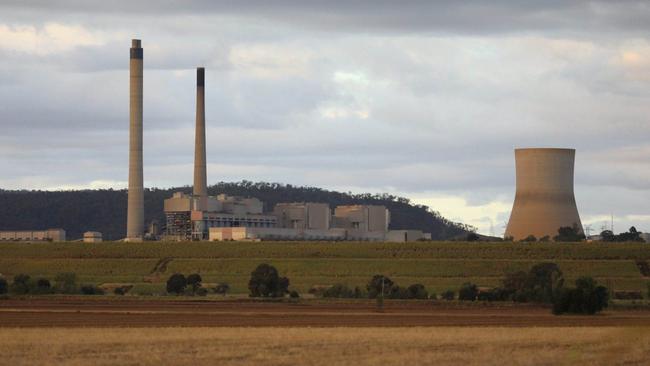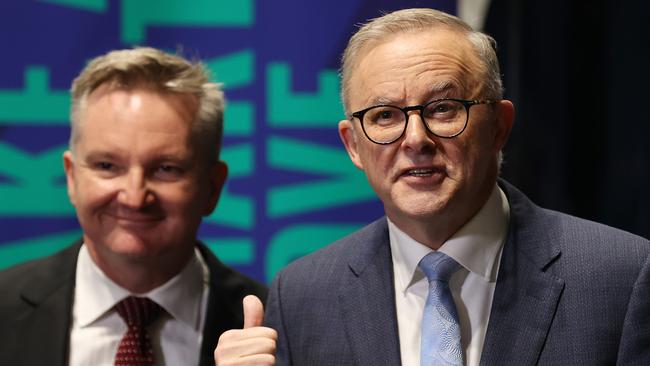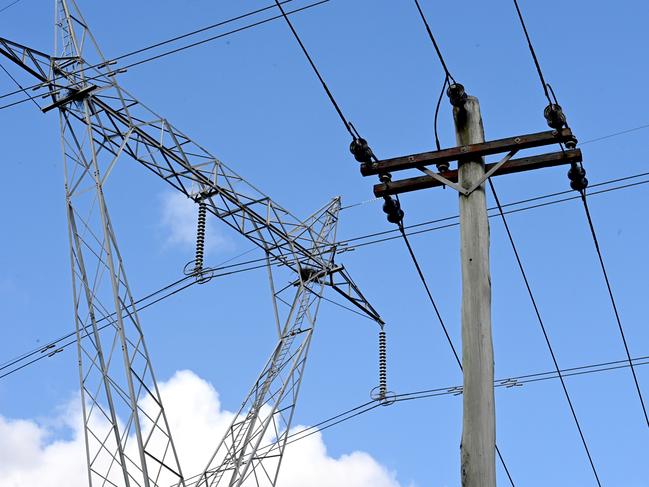Energy Minister Chris Bowen warns of ‘bumpy winter’ as energy crisis takes hold
Aussies have been given a grim outlook that they are in for a “bumpy winter” amid concerns electricity could rise 50 per cent.
National
Don't miss out on the headlines from National. Followed categories will be added to My News.
Federal Energy Minister Chris Bowen has given a grim outlook that Australians are in for a “bumpy winter” amid fresh warnings that electricity could rise by 50 per cent over the next two years.
Authorities have essentially blamed a “perfect storm” of factors contributing to the energy crisis — including Covid-19, the war in Ukraine and coal as driving forces behind sky high prices and pushing the state dangerously close to the brink of mass blackouts.
Speaking on Sunrise on Sunday, Mr Bowen said the spiralling energy crisis was a result of “a decade of changing energy policies” and “not enough investment in energy storage and non-renewable energy.”
“I have said before it is going to be a bumpy winter,’ the new Federal Minister said.
“The system is not fit for purpose. So we have got a short-term plan to keep the lights on and that has so far worked. Then, we have a long-term plan to get more investment into the system.”

This week, energy demand was outstripping power generation in NSW and South Australia. Supply in Queensland, Tasmania and Victoria appeared to be covering demand.
“In the old days … summer was the tough period for the energy system because everybody had their airconditioning on,” Mr Bowen explained.
“Now, you have more solar in the system pumping energy in the system [in the warmer months] so the pressure comes on in winter.
“That’s why we need storage … long-term storage and that is all that investment that we need.
“That is what has been lacking for a decade … we have got to get on with it. We don’t have a minute to waste … you don’t fix 10 years of delay in 10 days which is about the amount of time we have had.”
The energy crisis arguably hit rock bottom last week, with NSW Treasurer Matt Kean pleading with residents, already stretched to their financial limits due to inflation, to switch off non-essential power items including dishwashers.

In addition, NSW Health staff in the Sydney Local Health District were also asked to limit their power usage, with staff reportedly asked to switch off unused electrical equipment and lights, as well as avoid using printers.
Mr Bowen warned that an ease to the crisis will not be a “quick fix”, given the Federal Government have “got to build 10,000 km of transmission wire across this country”.
“That is not going to happen this year,” Mr Bowen said.
“We can start and we have started and we are starting but it is not going to happen immediately.
“What we can do is over the next few years get it built, get the pressure on energy prices through renewable energy, I think Australian understand that you don’t fix this in a day and we have never pretended we can.”
Tennant Reed of the Australian Industry Group warned that Australians may not only face a “bumpy winter” but an expensive one too, given the international competition for coal and gas will inevitably keep generation costs high — a cost that will hit Aussie consumers.
“We are currently in the frying pan and if we are lucky we will emerge into the slow cooker over the next couple of months,” Mr Reed told 9 News.
“Over the next two years it’s likely that households will be paying 50 per cent more for their electricity and potentially double for their gas.”

With the staggering rise in cost of living, Australians face a ballooning cost for energy heading into the back end of 2022 and beyond.
Last year the average wholesale electricity price on the east coast was less than $50 a megawatt hour, according to 9 News. By the beginning of 2022 it had risen $87 a megawatt hour.
As a result of the rising cost, the Australian Energy Market Operator (AEMO) took the unprecedented move to suspend the National Electricity Market on Wednesday afternoon, meaning they will have the power to force generators (power suppliers) to bid electricity into the market.
Previously generators were accused of withholding power due to the AEMO implementing a $300 megawatt hour price cap, which would force them to operate at a loss.
– with Alasdair Belling
Originally published as Energy Minister Chris Bowen warns of ‘bumpy winter’ as energy crisis takes hold




